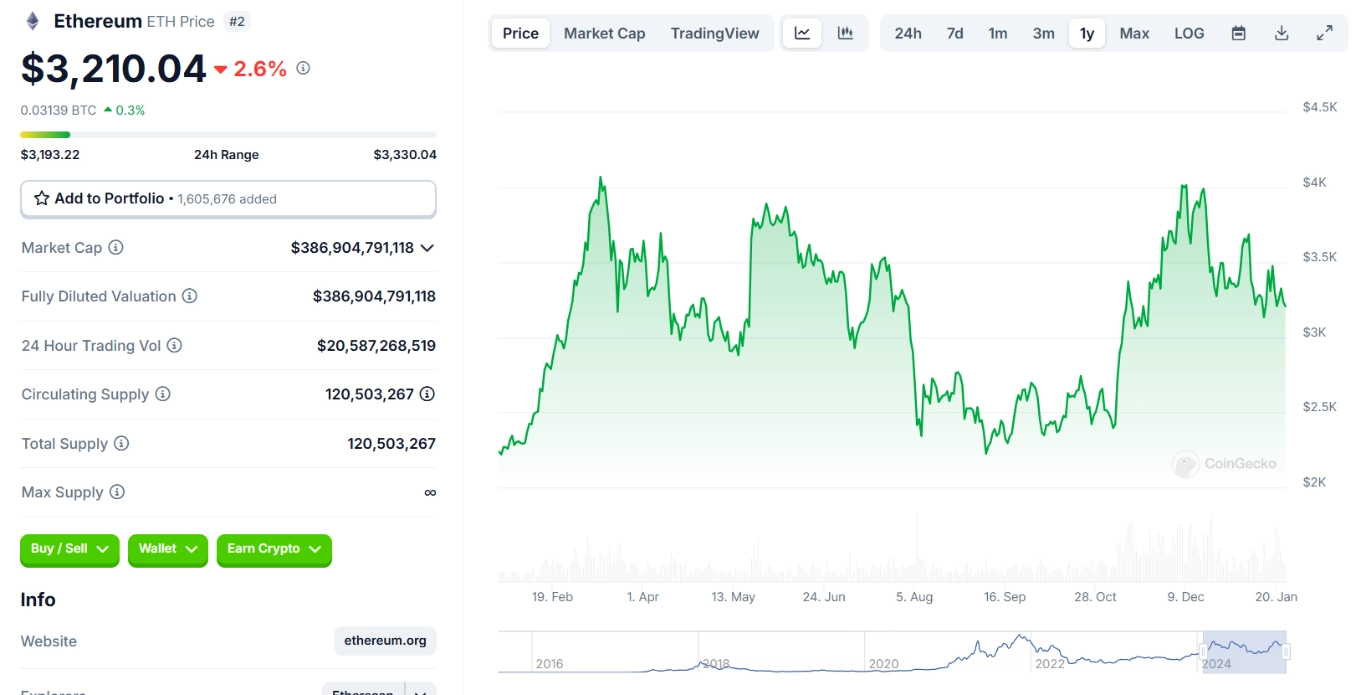On January 22, 2025, Justin Sun, the founder of the Tron network, made waves with a bold plan to restructure the Ethereum ecosystem and propel ETH’s value to $10,000.
In a post on the X platform, Sun outlined his strategy, which focuses on reforming supply management mechanisms, adjusting operational processes, and implementing new fiscal policies to steer Ethereum—the second-largest digital asset by market capitalization—toward a new phase of growth.
Justin Sun’s Proposal: Laying the Groundwork for Change

The core of Sun’s proposal revolves around halting regular ETH sales by the Ethereum Foundation for at least three years. Instead of relying on asset liquidation to fund operations, Sun suggested leveraging more sustainable revenue streams such as staking yields, decentralized lending platforms, and stablecoin-backed loans.
“This strategy not only creates a deflationary environment but also strengthens investor confidence,” Sun emphasized.
Another noteworthy aspect of the plan is the introduction of taxation on layer 2 platforms, which Sun estimates could generate approximately $5 billion annually. All the funds raised through these taxes would be used to buy back and burn ETH, ensuring complete decentralization of the process.
Streamlining Operations and Prioritizing Development
Sun also proposed streamlining the Ethereum Foundation’s structure, retaining only top-tier talent to focus on core objectives. He stressed the importance of prioritizing upgrades to Ethereum’s Layer 1 capabilities, particularly in scalability, security, and application development, to enhance operational efficiency and optimize resources.
Additionally, Sun aims to adjust Ethereum’s reward system by reducing network node rewards and increasing the amount of ETH burned from transaction fees to ensure the network maintains its deflationary characteristic over the long term.
According to Sun, these changes could quickly push ETH’s price to $4,500 in the short term, with the potential to reach $10,000 in the future.
“With decisive actions like these, ETH could surpass $4,500 in the first week, laying a strong foundation for long-term success,” Sun confidently stated.
Related: Justin Sun Joins WLFI as an Advisor
Challenges Facing the Ethereum Foundation

Justin Sun’s proposal comes at a time when the Ethereum Foundation is under increasing scrutiny. The organization has recently faced criticism for its continuous ETH sales to cover expenses, raising concerns about the sustainability of its financial model.
Moreover, Ethereum is facing fierce competition from rival blockchain networks like Solana, which are gaining attention for their ability to attract developers and new projects.
Internal governance issues within the Ethereum Foundation have also become a focal point, with criticisms directed at the efficiency and transparency of its leadership. These concerns have fueled calls for greater accountability and innovation to maintain Ethereum’s market dominance.






